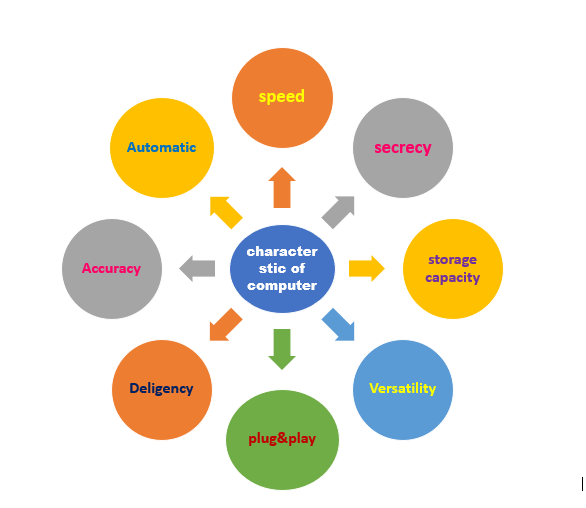Understanding the fundamental characteristics of computers is integral for making informed technology choices in today’s fast-moving digital era. Processing power and user interface all play an essential part in shaping their functionality and user experience.
In today’s ever-evolving technological landscape, understanding the fundamental aspects of computers has never been more essential. No matter if you are an enthusiast or prospective buyer; becoming familiar with all their essential characteristics can equip you to make informed choices when purchasing one.
Processing Power
One of the key inherent characteristics is processing power, typically measured in gigahertz (GHz). How quickly a computer processes information has an enormous effect on overall performance characteristics of computer.
Storage Capacity
Equally as significant is a computer’s storage capacity. Various storage devices affect how much information your machine can hold as well as how quickly you access that information.
Memory (RAM) Random Access
Memory (RAM) is a temporary storage area on your computer’s hard disk drive that plays an essential role in its speed and multitasking abilities, so its importance must be recognized if you want optimal computer performance. To understand its function properly is imperative.
Understanding Connectivity Today’s world of constant connectivity requires understanding all available options – ports, Wi-Fi capabilities, and Bluetooth technology all play an integral part in how users access computers and other devices.
Graphics Capability
Graphics capabilities on computers are of considerable relevance for anyone engaging in graphics-intensive activities; gaming enthusiasts or otherwise. Modern graphics cards contribute significantly towards providing a smoother and more visually appealing user experience.
Operating Systems
At the core of every computer lies its operating system (OS). From Windows and macOS to Linux and others, OSs act as the manager for resources while providing you with an interface through which to interact with their respective machines.
Form Factor
A computer’s physical design – known as its form factor – influences its portability and functionality, so your choice between desktop, laptop, or other form factors should depend on your individual needs and preferences.
As environmental concerns intensify, so too do energy efficiency initiatives, and understanding your computer’s energy consumption patterns and adopting measures to lessen its environmental footprint becomes ever more crucial.
Security Features With growing threats to digital security, computer’s built-in security measures become ever more essential. From antivirus software and biometric authentication systems, these safeguards protect data security as well as ensure privacy for you and others online.
Upgradability
Upgradability is an invaluable feature that allows you to adapt your computer system according to evolving needs and plans. Understanding which components can be upgraded and how this affects performance are vital components in creating long-lasting systems.
Reliability From personal use to business computing, the reliability of any computer is of the utmost importance. Factors like build quality, brand recognition, and warranty support all play an integral part in its reliability.
User Interface A friendly user interface enhances your computing experience, from intuitive design to responsive touchscreens – it plays an enormous role in how we interact with computers.
Future Trends
Computer technology continues to advance at an alarming rate. Artificial intelligence, quantum computing, and other emerging technologies may radically reshape how computers function today.
Conclusion
Computers form the core of our digital experiences, from their processing power that drives tasks to the user interface that facilitates interaction. Every aspect plays an essential part in shaping the modern computing landscape.




























+ There are no comments
Add yours